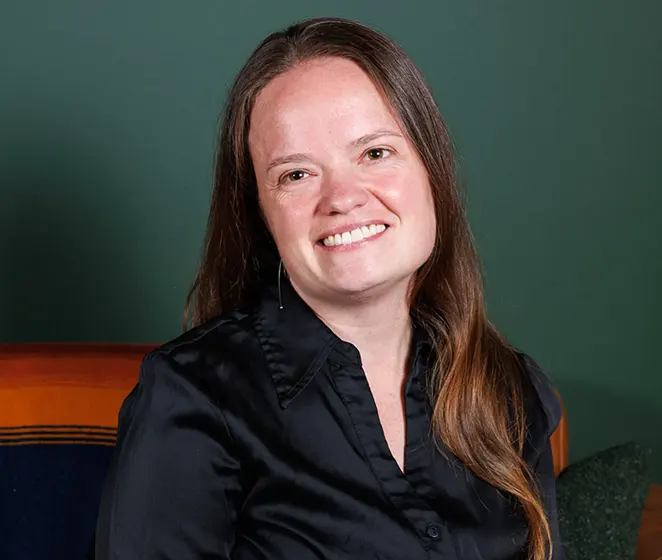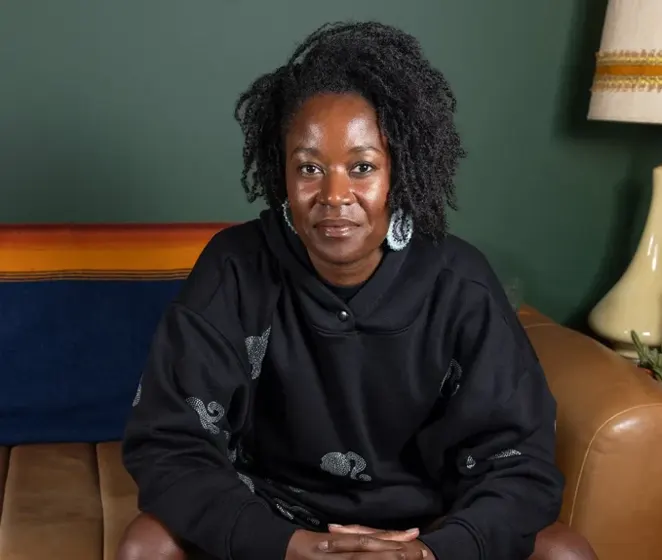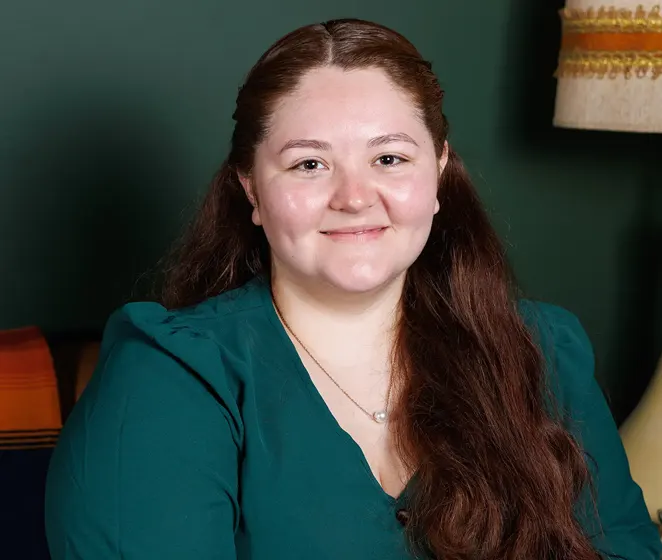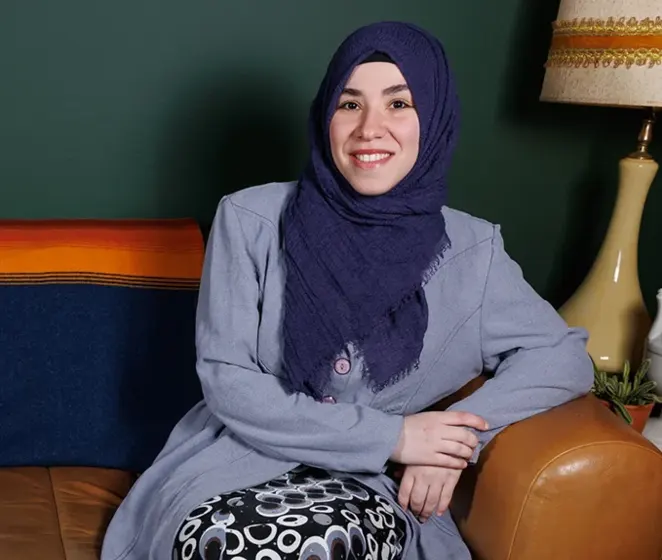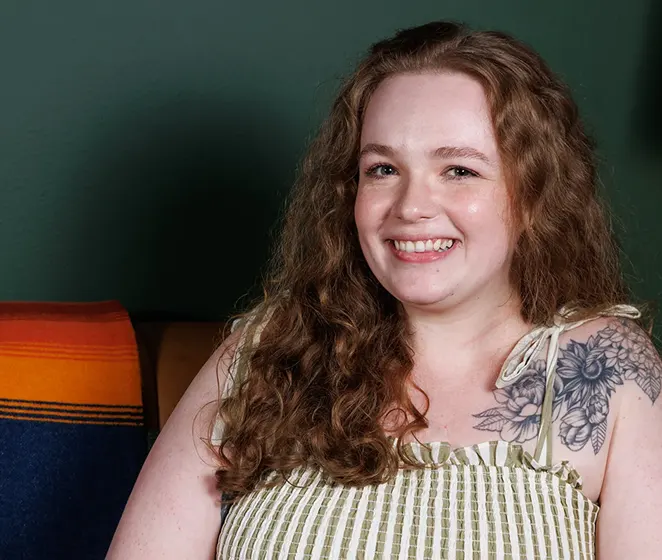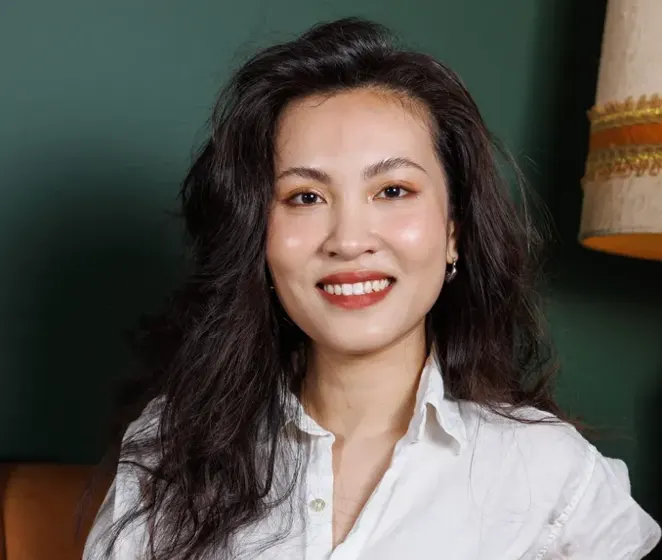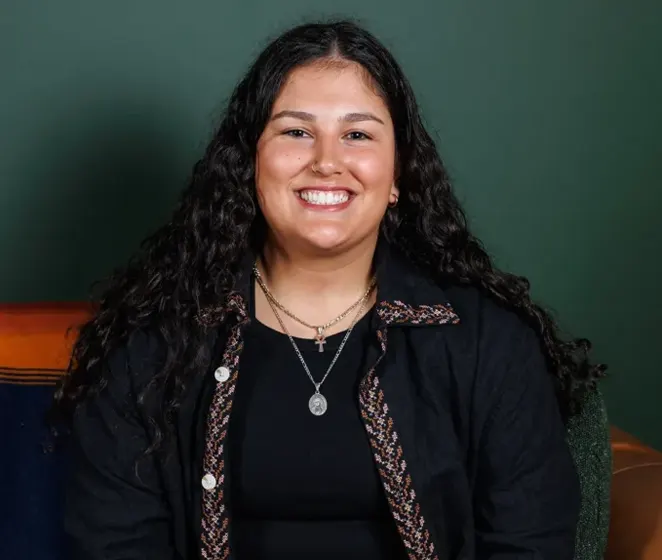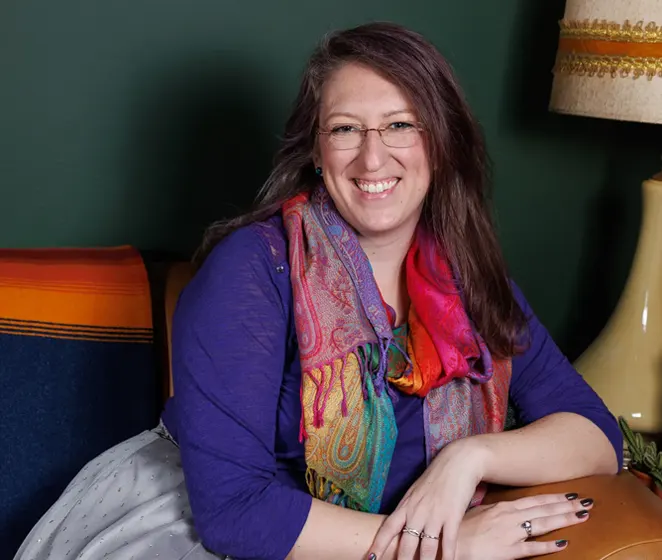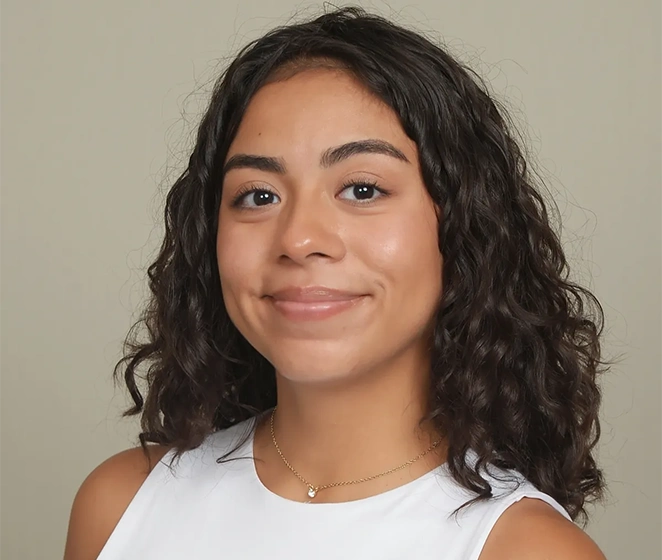By Intentional Spaces Psychotherapy
“Of course queer people are depressed. We’re terrified. And I’m here to say that’s okay—you’re not alone.”
For Andrielle Vialpando Kristinat (she/her), becoming a therapist wasn’t a tidy or academic decision. It wasn’t a checkbox on a career planning worksheet. It started earlier—before credentials, before theory—in silence. In grief.
When Andrielle was 14, her father died. She remembers how heavy it felt, not just the loss but the loneliness of it. The silence that settled over her family. Everyone was grieving, but no one was talking. No one asked her how she was doing. The unspoken message was clear: if you’re strong, you don’t bring it up. If you’re different, you figure it out on your own.
“There’s no way you’re gonna add to the pain by bringing it up—so you don’t.”
That grief didn’t disappear. It became part of her. It became something she carried alongside everything else—her queerness, her experience as a Latinx teen, the unspoken rules of culture and family that told her what she should feel, how she should behave, and who she should be.
But Andrielle noticed something early: she could feel what other people were holding, too. She noticed pain when it was being hidden. She paid attention to what wasn’t said. And slowly, her role in the world began to shift. Not as the one who stayed silent, but as the one who listened.
“I understand a lot of that difficulty of interpersonal relationships, conflict within yourself, and stuff. That’s kind of why I went into this…”
Now, as a therapist, Andrielle brings that same clarity, emotional depth, and deep personal insight into her work. She specializes in working with people who, like her, grew up holding more than they could name. Her clients are often queer, neurodivergent, or Latinx young adults—people navigating layered identities, intergenerational expectations, and the heavy residue of unprocessed grief or shame.
Some have grown up straddling cultures or feeling emotionally responsible for the well-being of others. Some are grieving—someone, something, or some past version of themselves. Many are just tired of shrinking, of being misunderstood in therapy, of performing strength instead of feeling safe enough to be soft.
“Even little things can be part of the solution.”
Andrielle’s therapy space isn’t defined by four walls—it’s defined by presence. Whether you’re connecting from your bedroom, your car, or a quiet moment between responsibilities, she brings the same grounded, culturally attuned, and radically honest care to every session. You don’t have to earn support by being articulate or emotionally tidy.
She gets the messy parts—because she’s lived them. She knows what it means to show up with your heart half-closed and your grief half-processed and still be worthy of connection.
She doesn’t offer a perfect answer, but she does offer presence. She’s not there to correct you. She’s there to walk with you as you become more yourself.
“I want my clients to know that even if something still hurts, it doesn’t mean they’ve failed at healing.”
If you’ve ever felt unseen in therapy, or if your pain has been minimized because it wasn’t “big enough” to name, Andrielle is the kind of therapist who can hold all of that. She offers a space where grief and joy, exhaustion and hope, fear and self-acceptance can all coexist.
Because healing isn’t about arriving perfectly.
It’s about showing up—anyway.





